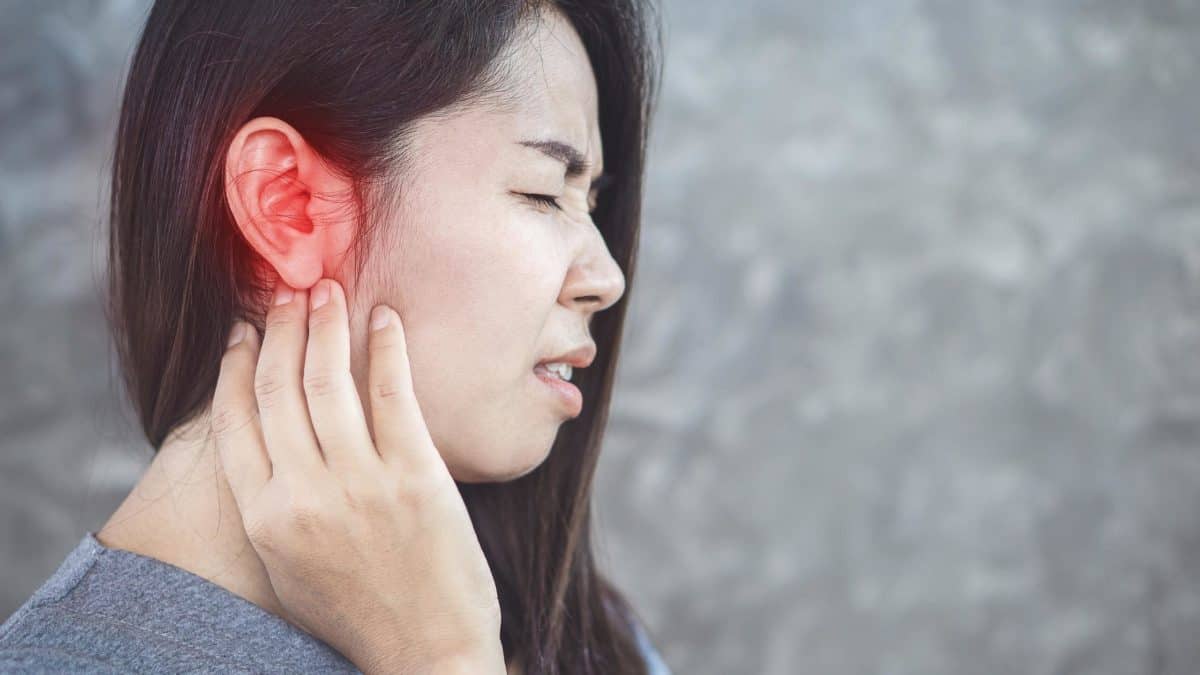- How to Recognize the First Signs of Hearing Loss - June 5, 2025
- Understanding the Connection Between Tinnitus and Weather - May 17, 2025
- The Most Unexpected Reasons Hearing Aids Can Malfunction - May 9, 2025
Researchers have learned a lot about the effects of COVID-19 over the last two years. We now know the common symptoms, both short-term and long-term, and the list continues to grow. Some of the symptoms resemble a common cold or flu, such as respiratory distress, headaches, and cough. Others are quite unusual, such as the loss of taste and smell. A recent study has added another surprising symptom to the list of potential effects of COVID-19. Those who already had tinnitus commonly find that COVID-19 make their symptoms worse or more bothersome, and a few even found that it was related to the onset of a new case of tinnitus. Researchers have a few theories about this relationship, and further studies will be necessary to understand how this connection works within the body.
The Study
This study was published in the journal Frontiers in Public Health under the title, “Changes in Tinnitus Experiences During the COVID-19 Pandemic.” Researchers recruited 3,103 participants to take part in an online survey about their experiences with tinnitus. The study design only included individuals with an existing case of tinnitus, and they were specifically asked about the progression of their symptoms. The study found that 40 percent of those who had a case of COVID-19 infection found their tinnitus symptoms became worse. As well, 32 percent of participants reported that their symptoms became more bothersome. Only 7 participants said that COVID-19 initiated their tinnitus symptoms, so that result is insufficient to bring about a clear statistical relationship between the two conditions.
The Interpretation
With these statistics in hand, we can look under the hood to see what is really happening when a person develops a case of COVID-19 and already has a diagnosis of tinnitus. In the first place, the social conditions under which COVID-19 came about were quite unusual. With widespread lock-downs and limits on social encounters, many people found themselves spending more time at home in quiet environments. Prior studies have shown that tinnitus symptoms tend to be worst when a person is in a quiet location, so the conditions of the COVID-19 pandemic were perfect for higher rates of tinnitus to manifest. In addition, prior studies have shown that stress and anxiety are highly correlated with tinnitus. Researchers have found it challenging to determine the causal relationship between stress and tinnitus. It is possible that stress brings about tinnitus, but it is also possible for tinnitus to make a person experience stress. Researchers also point out that a third factor might be causing both stress and tinnitus. With these questions in mind, further studies will need to discover how COVID-19 and tinnitus might be connected within the body. When a person has a respiratory ailment such as COVID-19, that person can have lower levels of oxygen in the bloodstream. We know that the tiny hairlike organelles of the inner ear, called stereocilia, are highly sensitive to the level of oxygen in the blood. When the bloodstream does not carry enough oxygen to the stereocilia, they can become bent, broken, or otherwise damaged. This damage to the stereocilia can result in hearing loss, but it can also result in tinnitus. As researchers continue to explore this possibility, we can keep in mind that the causal relationship between COVID-19 and tinnitus is unsubstantiated by the current online survey that was published in this specific study.
If you have noticed that tinnitus symptoms are worse or more bothersome, the good news is that there are treatment options available. Some at-home remedies can be helpful, such as playing a television at low volume or running a box fan. Others play white noise machines or devices specifically designed to aid tinnitus symptoms by playing the sounds of nature. Beyond these home remedies, some of the latest hearing aids are also equipped to address tinnitus symptoms by emitting specific frequencies that can cancel out tinnitus symptoms. If you are interested in exploring this possibility, why not give our hearing healthcare professionals a call? We can diagnose your hearing and tinnitus needs and determine what treatment is necessary. With our assistance, you can get a full diagnosis and treatment plan for all your hearing-related needs.

